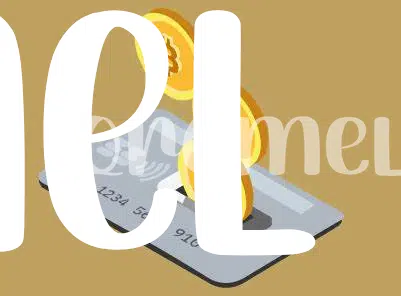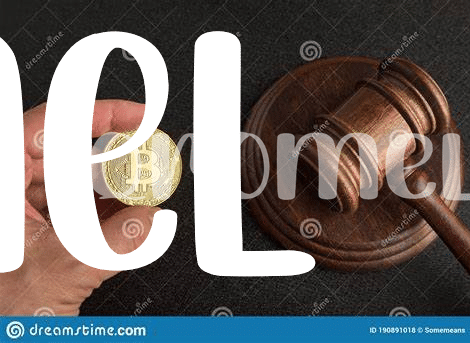Overview of Bitcoin Disputes 🌐

Bitcoin disputes have become a prominent issue in the digital currency realm, often stemming from disagreements over transactions, security breaches, or regulatory compliance. The decentralized and pseudonymous nature of Bitcoin transactions can complicate dispute resolution, requiring a nuanced understanding of blockchain technology and legal frameworks. With the rising popularity of cryptocurrencies, the need for effective resolution mechanisms for Bitcoin-related conflicts is paramount.
| Bitcoin Disputes Overview |
| — |
| Bitcoin disputes encompass a range of issues, from payment discrepancies to fraud allegations. The lack of centralized oversight in the Bitcoin network necessitates innovative approaches to addressing conflicts. Dispute resolution mechanisms must adapt to the unique characteristics of cryptocurrencies, ensuring fairness and transparency in resolving contentious issues. |
Role of Regulations in Estonia 🇪🇪
In Estonia, the regulatory landscape surrounding Bitcoin plays a crucial role in shaping dispute resolution mechanisms. The country’s proactive stance on cryptocurrency regulations provides a structured framework for addressing disputes effectively. By establishing clear guidelines and oversight mechanisms, Estonia aims to enhance transparency and accountability in Bitcoin transactions. This proactive approach not only fosters trust among stakeholders but also sets a precedent for other jurisdictions grappling with similar challenges. The regulatory framework in Estonia underscores the importance of balancing innovation with consumer protection, creating a conducive environment for the sustainable growth of Bitcoin usage. As Estonia continues to refine its regulatory framework, it sets a precedent for international best practices in managing Bitcoin disputes and upholding the integrity of digital transactions.
Challenges in Dispute Resolution ⚖️

—
In navigating Bitcoin disputes, a myriad of challenges can arise concerning dispute resolution. These challenges often stem from the decentralized and borderless nature of cryptocurrencies, making it complex to determine jurisdiction and legal recourse in resolving conflicts. Additionally, the pseudonymous transactions and irreversible nature of Bitcoin pose significant obstacles in identifying parties involved in disputes, further complicating the resolution process.
With the emergence of new technologies like blockchain, traditional dispute resolution methods face further complexity as they grapple to adapt to the unique characteristics of digital assets. Moreover, the lack of standardized regulations and clear precedents in the crypto space adds another layer of difficulty in effectively addressing disputes. As the landscape continues to evolve, finding efficient and equitable solutions to Bitcoin-related conflicts becomes increasingly vital for fostering trust and stability in the ecosystem.
—
Impact of Blockchain Technology 🔗

The integration of blockchain technology has revolutionized dispute resolution in the realm of Bitcoin transactions. By utilizing decentralized ledgers that are immutable and transparent, blockchain enhances the security and efficiency of resolving conflicts within the cryptocurrency space. This innovation provides a verifiable record of transactions, making it easier to track and verify the authenticity of payments, ultimately streamlining the resolution process for all parties involved.
Furthermore, the decentralized nature of blockchain technology eliminates the need for intermediaries, reducing the potential for errors or fraud in dispute resolution. Smart contracts, which are self-executing agreements coded on the blockchain, can automate the enforcement of terms, ensuring fair outcomes in disputes. As blockchain continues to evolve, its impact on dispute resolution will likely shape a more secure and trustworthy environment for Bitcoin transactions.
Legal Framework Advancements 📜
Legal framework advancements in Estonia play a crucial role in shaping the landscape for resolving Bitcoin disputes. The country has been proactive in updating its regulations to accommodate the complexities of cryptocurrency transactions, providing a more secure and transparent environment for both businesses and individuals involved. With clear guidelines and updated laws, the legal framework advancements in Estonia help in streamlining dispute resolution processes, ensuring fairness and efficiency in handling Bitcoin-related conflicts. These advancements not only enhance accountability but also promote trust and confidence in the digital currency ecosystem. By continuously evolving and adapting to the changing dynamics of the cryptocurrency market, Estonia demonstrates a forward-thinking approach towards regulating Bitcoin disputes, setting a precedent for other jurisdictions to follow suit.
| Key Points | Implications |
|---|---|
| Clear guidelines | Facilitate smoother dispute resolution |
| Enhanced accountability | Promotes trust and confidence |
| Adapting to market changes | Future-proofing regulatory framework |
Future Trends and Considerations 🔮

As the landscape of Bitcoin dispute resolution continues to evolve, it is essential to consider the future trends and considerations that may shape the regulatory framework in this space. With emerging technologies such as blockchain gaining traction, there is a growing need for adaptable and robust regulations to address dispute resolution efficiently. The intersection of legal frameworks and technological advancements will play a pivotal role in ensuring transparent and fair resolutions for Bitcoin-related disputes.
Furthermore, as countries like Equatorial Guinea and El Salvador navigate the complexities of Bitcoin payment dispute resolution, it becomes evident that a harmonized approach is crucial for international consistency. By embracing innovation and fostering collaborative efforts, the future of Bitcoin dispute resolution holds the promise of streamlined processes and enhanced trust in digital transactions.
Please find more information on **Bitcoin payment dispute resolution in El Salvador**.
